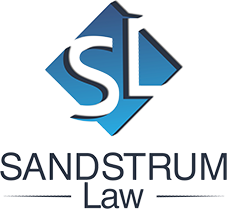Exemptions – Exempt Employees [Colorado Minimum Wage Order Number 30]
The Division of Labor refers to the Colorado Minimum Wage Order Number 30 (hereafter referred to as the Wage Order) to answer questions about exempt and non-exempt employees. The Administrative, Executive or Supervisor, Professional, and Outside Salesperson exemption definitions in Section 5 of the Wage Order pertain only to the industries covered by the Wage Order. Employees and employers not covered by the Wage Order as well as those covered by the Wage Order should be aware that they may also be covered by the Fair Labor Standards Act and should contact the United States Department of Labor at 720-264-3250 for additional information.
Exemptions described are:
Exemptions from the Wage Order
Exemptions from Overtime
Exemptions from the Wage Order
Section 5 of the Wage Order sets forth, by name, categories of employment by profession or occupation. The following employees or occupations are exempt from all provisions of the Wage Order: administrative, executive/supervisor, professional, outside sales employees, and elected officials and members of their staff. Other exemptions are: companions, casual babysitters, and domestic employees employed by households or family members to perform duties in private residences, property managers, interstate drivers, driver helpers, loaders or mechanics of motor carriers, taxi cab drivers, and bona fide volunteers. Also exempt are: students employed by sororities, fraternities, college clubs, or dormitories, and students employed in a work experience study program and employees working in laundries of charitable institutions which pay no wages to workers and inmates, or patient workers who work in institutional laundries.
Exemption Definitions
Administrative Employee:
A salaried individual who directly serves the executive, regularly performs duties important to the decision-making process of the executive, and is earning in excess of the equivalent of the minimum wage for all hours worked in a workweek. Said employee regularly exercises independent judgment and discretion in matters of significance and their primary duty is non-manual in nature and directly related to management policies or general business operations.
Executive or Supervisor:
A salaried employee earning in excess of the equivalent of the minimum wage for all hours worked in a workweek. Said employee must supervise the work of at least two full-time employees and have the authority to hire and fire, or to effectively recommend such action. The executive or supervisor must spend a minimum of 50% of the workweek in duties directly related to supervision.
Professional:
A salaried individual, earning in excess of the minimum wage for all hours worked in a workweek, employed in a field of endeavor who has knowledge of an advanced type in a field of science or learning customarily acquired by a prolonged course of specialized intellectual instruction and study. The professional employee must be employed in the field in which they are trained to be considered a professional employee.
The usual rule is that an employee must be salaried to be exempt. However, doctors, lawyers, teachers, and employees in highly technical computer occupations earning at least $27.63/hour do not have to be paid on a salary basis in order to qualify for exemption as a professional under the Wage Order.
Outside Salesperson:
Any person employed primarily away from the employer’s place of business or enterprise for the purpose of making sales or obtaining orders or contracts for any commodities, articles, goods, real estate, wares, merchandise or services. Such outside sales employee must spend a minimum of 80% of the workweek in activities directly related to their own outside sales.
Note: Not all salaried employees are exempt. To be exempt under the Wage Order, the employee must meet the criteria for the relevant exemption. If the employee doesn’t meet the criteria, the employee is non-exempt and must be paid for overtime.
Exemptions from Overtime
Exemptions from all or part of the overtime requirement may be allowed under the Wage Order for commission sales, the ski industry, and medical transportation. These along with salespersons, parts-persons, and mechanics, who are employed by an automobile dealer are exempt as explained in Section 6 of the Wage Order.
The Following employees are exempt from the overtime provisions of the Wage Order:
· Salespersons, parts-persons, and mechanics employed by automobile, truck, or farm implement (retail) dealers: salespersons employed by trailer, aircraft and boat (retail) dealers.
· Commission Sales Exemption: sales employees of retail or service industries paid on a commission basis, provided that 50% of their total earnings in a pay period are derived from commission sales, and their regular rate of pay is at least one and one-half times the minimum wage. This exemption is only applicable for employees of retail or service employers who receive in excess of 75% of their annual dollar volume from retail or service sales.
· Ski Industry Exemption: employees of the ski industry performing duties directly related to ski area operations for downhill skiing or snow boarding, and those employees engaged in providing food and beverage services at on-mountain locations, are exempt from the forty (40) hour overtime requirement of the Wage Order. The daily overtime requirement of one and one-half the regular rate of pay for all hours worked in excess of twelve (12) in a workday shall apply. This partial overtime exemption does not apply to ski area employees performing duties related to lodging.
· Medical Transportation Exemption: employees of the medical transportation industry who are scheduled to work twenty-four (24) hour shifts, are exempt from the twelve (12) hour overtime requirement provided they receive overtime wages for hours worked in excess of forty (40) hours per workweek.
See Advisory Bulletin: Exemptions and Jurisdictional Issues, 30 (I), for more information on exemptions.
References
Advisory Bulletin: Exempt Employees Under Colorado Minimum Wage Order Number 28, 9(I)
Colorado Minimum Wage Order Number 30 (Sections 5 and 6)
Websites
U.S. Department of Labor
U.S. Department of Labor Wage and Hour Division

